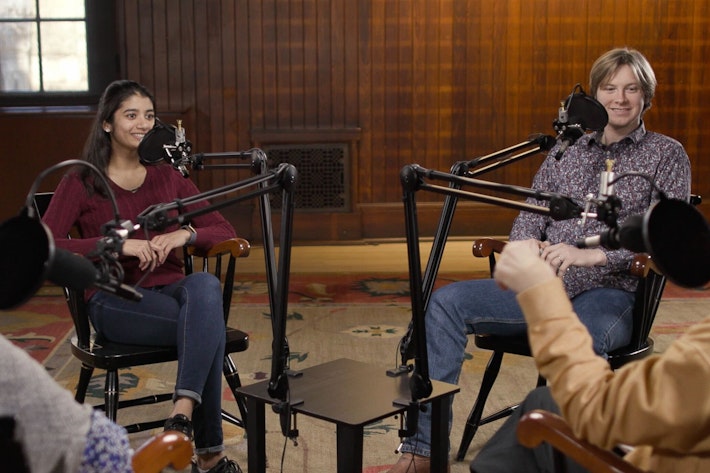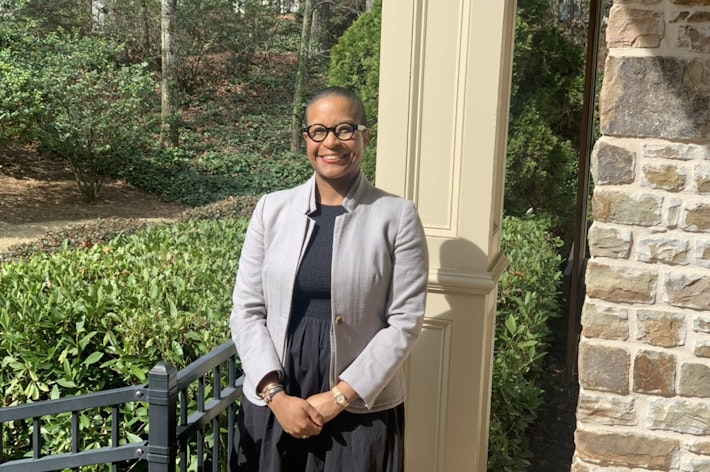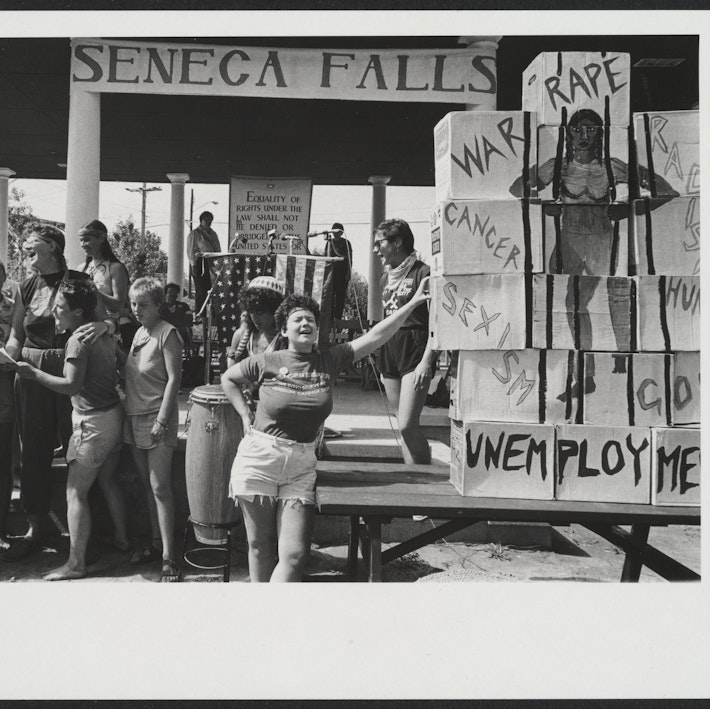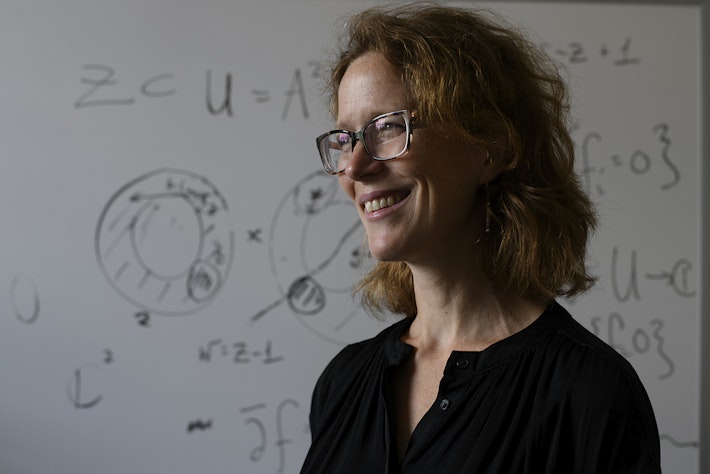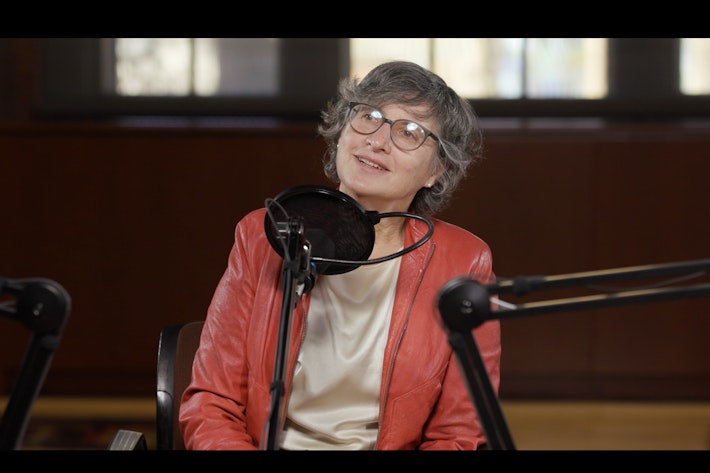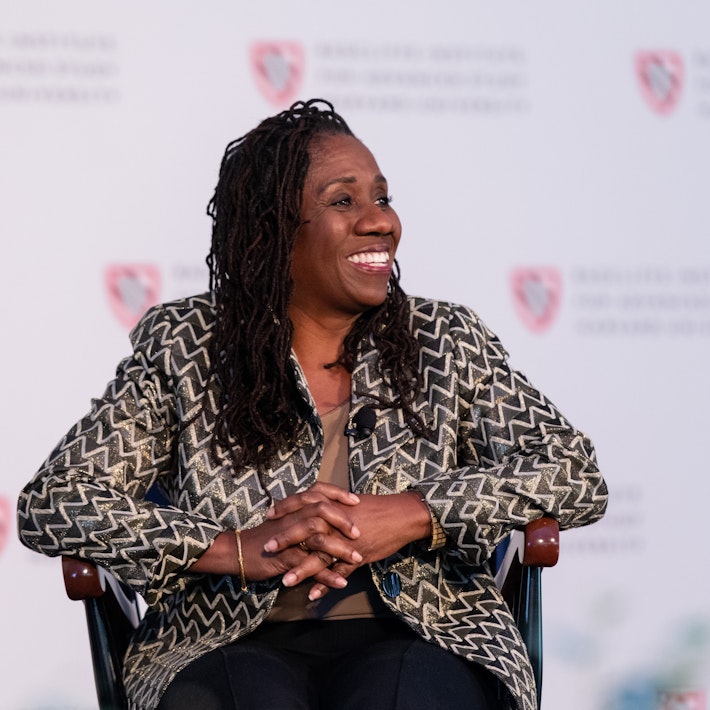The Letting Go
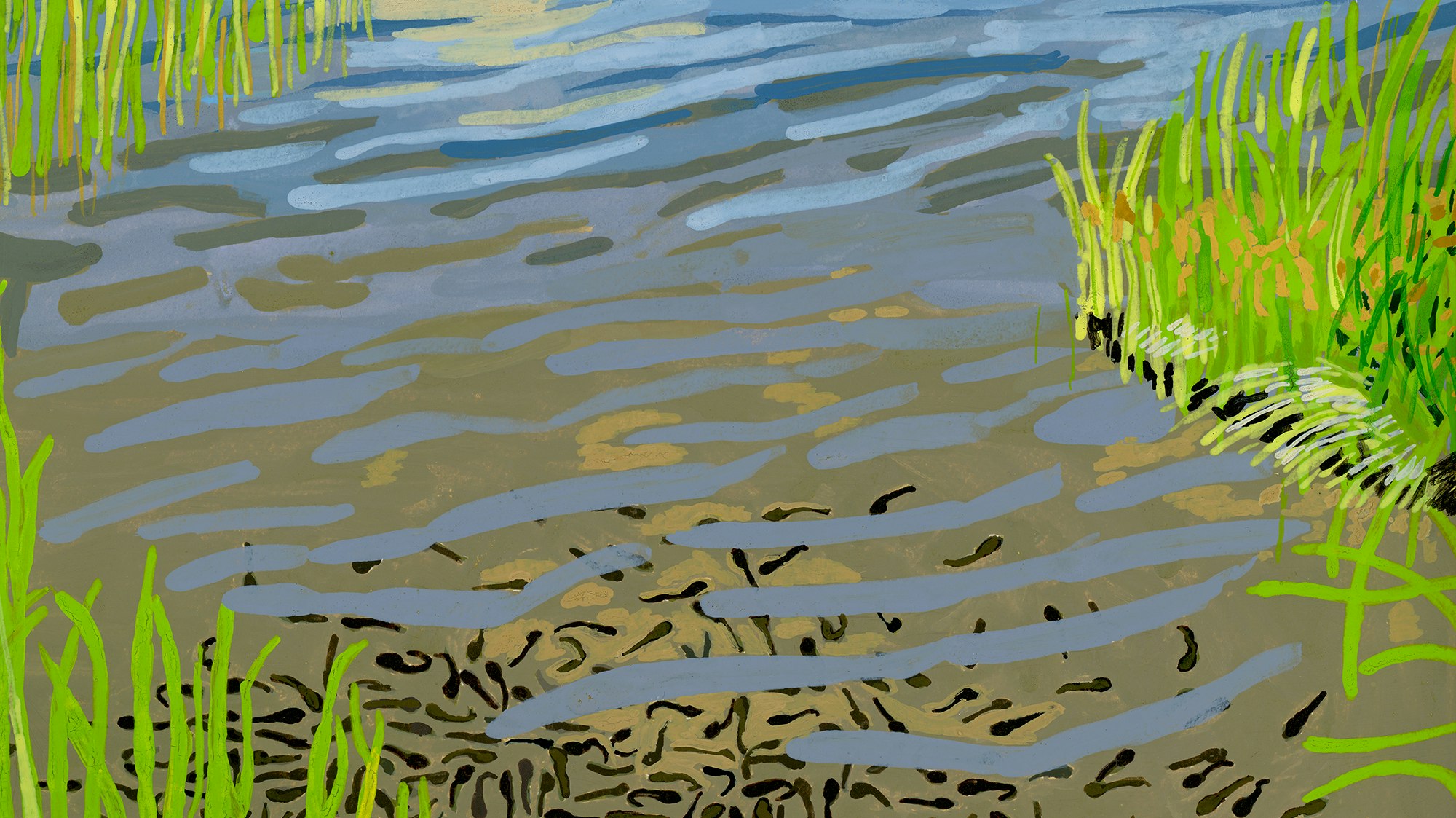
I am a born catastrophist, a constant future-dreader.
I’ve feared that we were overdue for a pandemic since my first short story was published in the Atlantic in 2006, a retelling of the Abélard and Héloïse legend during the 1918 influenza epidemic, which I researched compulsively. When I imagined what such a pandemic would look like in contemporary America, I foresaw our collective slow boil of fury at a right-wing government’s intentional incompetence, the thick outrage that wells up when a man without a mask sneezes at the grocery store. I imagined the radical loneliness so many of us feel these days; it wasn’t a surprise when I started dreaming at night of sitting in cold, clear museum-light among throngs of strangers, only to awaken to another day of artless, empty private space.
I did not, however, expect the pandemic to radically fracture my perception of time.
Reading by Molly Peterson ’22
We fled our house in Florida after the state opened up in early May; I didn’t have much faith in Floridians to be responsible, and, lo, they were not. We drove north toward New Hampshire on the apocalyptically abandoned highways, stopping only to get gas and pee in the bushes. To alleviate my apocalypse fears a few years ago, I had converted my parents’ tiny 19th-century horse barn to a little house. Here we fall asleep to frogsong in the nearby pond and awaken to birds louder than any alarm clock. There’s a large garden for vegetables, and forests for my two boys to get lost in. If I didn’t have to go down the hill to the post office or to the grocery store, we would be entirely sealed off from the world.
All of this should have made for an idyllic summer; yet the virus looms so large, the chilly shadow of suffering thrown on so many people out in the world, that even here it is impossible to feel peace. As I write, my hopes for the summer have seeped away. Whatever ambition I had to write fiction feels paltry, warm ash in the hand. It is a good day if I exercise, make a balanced dinner for my boys, and convince one of them to sit on my lap for a few minutes, even if I can’t remember the last time the little boy took a shower with soap. The ways I mark time have faded: I used to travel to give lectures and book talks three or four times a month, which kept me ticking to a tight schedule, but all that is gone. Day bleeds into day, the weekend the same as the week. The major marker of time passing is in the way the light of summer is slowly leaving us earlier in the evening, and the brilliant cycling of the plants, columbines in the ditches overcome by bird vetch, bird vetch overcome by ragweed.
A week ago, I stood in my bathing suit and goggles on the dock, intending to swim laps, but instead found myself watching the newts lying thickly in the warm brown water and the way the sun behind me seemed to shine in rays out of my silhouette. My mind emptied out. My stasis wasn’t amnesiac—I still felt the overwhelming melancholy of the world—but rather a kind of surrender. I couldn’t work the anxiety away this time. My agitation would help nobody. And so I felt time go syrupy, and I let it go. My children would later tell me they kept looking up from their books to find me standing there, motionless. Eventually my dog clicked up the dock and put her nose in my knee and helped drugged time slide back to normal. Not entirely, though; time still feels strange to me, a little thick and slow and moody. Of all the changes rippling out of the pandemic, this is one I hope will stay.
This essay appeared in the Fall 2020 issue of Radcliffe Magazine.
Lauren Groff was a 2018–2019 Suzanne Young Murray Fellow at the Radcliffe Institute. She is a writer of critically acclaimed literary fiction, and her most recent book is Florida (Riverhead Books, 2018).

